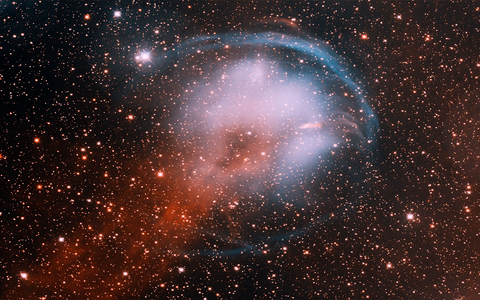Earlier this week, a radio telescope located in the outback of Western Australia discovered a cosmic phenomenon that resembled a jellyfish!
Now, let's not confuse this jellyfish with the Cosmic Jellyfish sea creature that was discovered in November of 2018. NOAA researchers discovered this UFO-looking jellyfish that they named the "Cosmic Jellyfish" while exploring the Utu Seamount in National Marine Sanctuary of American Samoa.

Take a better look at the celestial-like sea creature here.
Back to the space jellyfish phenomenon. PhD candidate Torrance Hodgson, from the Curtin University node of the International Centre for Radio Astronomy Research (ICRAR) in Perth, said that his team observed the cosmic phenomenon (that yields a third of the moon's diameter), for 12 hours at five different radio frequencies.
Hodgson explained, "this radio jellyfish holds a world record of sorts. Whilst it's bright at regular FM radio frequencies, at 200 MHz the emission all but disappears."
"No other extragalactic emission like this has been observed to disappear anywhere near so rapidly."
In order for Hodgson and his team to understand how this rare phenomenon occurred, they had to do some cosmic digging and look into the ancient background of the jellyfish.
From their research, the theory behind the space jellyfish phenomenon is as follows. More than 2 billion years ago, supermassive blackholes from multiple galaxies spewed out powerful jets of plasma, which faded and went dormant. Recently, however, this plasma started mixing at the same time as shock waves passing through the system. This caused the plasma to be reignited, which illuminated the jellyfish!.
New low frequency technology is set to implemented later this year in remote Australia, which means astronomers may discover other rare radio jellyfish as well.
Overall, these recent observations of the jellyfish only hints at what's to come in seeking answers to questions about the cosmos.






